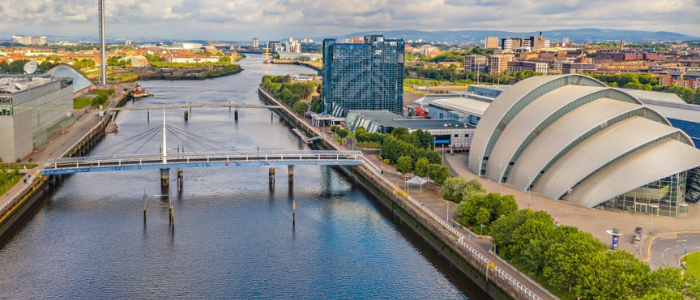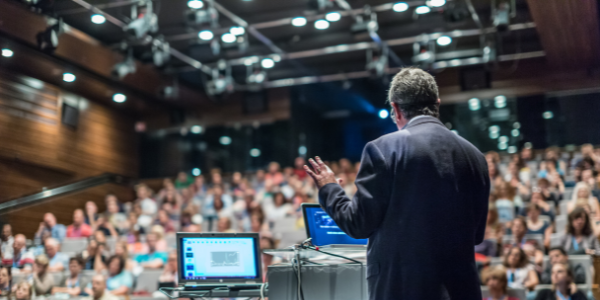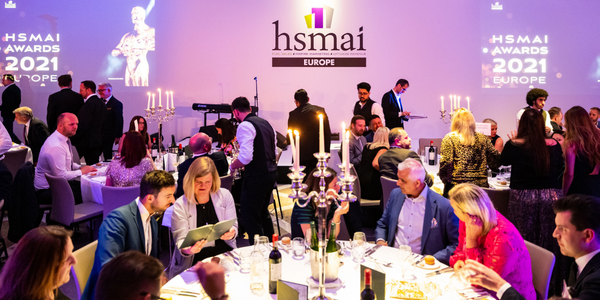
Peter Duthie Chief Executive of Scottish Event Campus (SEC) and Chair of Scotland’s Event Industry Advisory Group (EIAG) outlines the work of the EIAG throughout the year, and discusses some of his own personal highlights from 2021 as well some predictions as part of a 2022 forward look.
What has been the focus and priorities for the EIAG throughout this year?
The main overarching focus of the group has always been to highlight the value of the sector not just in economic terms but also in terms of the national health and well-being agenda. The priority was to secure continued support for the sector and advocate for the safe & sustainable return of events at the earliest opportunity.
We have met 14 times as a collective group throughout 2021 (26 times in total), and there have been additional meetings across a range of different priority Workstreams and Working Groups including Innovation and Good Practice, Event Sector Stimulus, and Health and Wellbeing. We have also had regular dialogue with Government Ministers, most recently with Jenny Gilruth, Minister for Culture, Europe and International Development, which has ensured a continued voice for the sector at Government level.
As you can imagine, there has been much to discuss and provide input on as the sector has navigated through 2021. The diverse membership of the group has allowed us to collectively represent the views of our wide-ranging industry, communicate the challenges facing our businesses and advocate the importance of the sector to Scotland. We have focused on a range of topics including COVID-19 vaccination certification, financial support, best practice, baseline mitigations and guidance, event insurance, Standard Industry Classification (SIC) codes, and workforce and supply chain challenges.
There has been some really critical and significant achievements by the group in 2021, not least the work with Government to support the return of events which has shown that as a sector, we have the required expertise and skills to ensure the safe resumption of events on a larger scale. The Group has assisted with the development of relevant government guidance. Free industry webinars have also played a key role in ensuring that best practice, approaches to guidance and indeed challenges are shared across the wider sector.
The Contribution of Events to Scotland’s Wellbeing research project led by Dr Bridget McConnell, CBE & Chief Executive of Glasgow Life as part of the EIAG Health and Wellbeing Economy workstream and Wavehill Social and Economic Research also reinforced the important role that events play not just in the economy but also to the social fabric of our country.
What do you see as the key priorities for the EIAG as we move into 2022?
The EIAG worked to develop an Event Sector Stimulus paper that was put to Government earlier this year. It identified a number of key areas which I think will continue to be at the forefront of discussions. These included skills and workforce development, financial support, guidance and communication.
Maintaining industry engagement in the development and communication of any further relevant industry guidance and regulation will be absolutely vital to facilitating the sector’s recovery.
Continuing to showcase Scotland’s viability and reputation as a world-class events destination will be critical as we move into 2022 whilst at the same time recognising the importance of smaller community based events. Scotland plays host to a range of major events next year which I’m sure will further strengthen and enhance public confidence.
Any personal highlights for 2021?
There’s a number to draw upon. As Chair of the EIAG, I feel extremely proud of the partnership and collaboration that has been achieved by the group throughout the year, but mostly the sheer passion, dedication and determination to get our sector back up and running where possible. I’d like to give my personal thanks to members of the Group for their support and diligence, and also that of VisitScotland Events Directorate for providing the vital administrative back-up.
From an SEC perspective, we were extremely proud to have played a key role in the fight against COVID-19, and the remobilisation of NHS Scotland by providing space for the NHS Louisa Jordan and the vaccination centre. Another hugely memorable moment for me was the return of live entertainment at the SEC in August this year. After almost a year and a half, there was no better feeling than seeing audiences enjoying a safe, shared experience, hearing laughter, excitement and having our venues do what they do best.
Ultimately for me, the key highlight would have to be COP26 in November this year. The SEC was truly honoured to have been nominated as the host venue for the conference and very proud ultimately to have achieved great feedback for our team’s contribution to the success of the event. To have world leaders, attendees and campaigners gather to address the most critical issue of our time, and to have the eyes of the world on Glasgow, and indeed Scotland was incredible.
Looking ahead to 2022, what do you think are the main challenges and opportunities for the events sector in Scotland?
Ultimately the main challenge is to ensure that we can all safely recover a stronger and more sustainable sector that will ensure Scotland’s position as the perfect stage for events both domestically and internationally.
As we all know from global discussions, I think climate change will continue to dominate, with environmental awareness and sustainability continuing to drive event agendas, both in terms of those organising events, and consumers attending events. I think we have a real opportunity here to showcase Scotland as a world leader – the events sector had already made significant progress in terms of how we work and will continue to innovate and evolve in this field.
Workforce development will continue to be a challenge. This year’s earlier lockdowns meant many experienced, skilled industry professionals were required to leave the sector and secure employment elsewhere. We must ensure we safeguard our skilled employees and attract those looking to enter the industry by working collectively across organisations to address relevant training and skills gaps.
There is real opportunity in the sector continuing to reinforce that we run safe events, and that the safety of our audiences, visitors, exhibitors and colleagues is our highest priority. Throughout the pandemic many of us have had to diversify, adapt, innovate and develop creative solutions in order meet the needs of our audiences and indeed the changing guidelines. The desire and public confidence for live events remains strong, and as a sector, we must respond to that demand by doing what we do best.
COVID-19 has ushered many of us to have to think differently, so keeping abreast of the latest trends will be vital. Pandemic-accelerated digitisation, data and technology will continue to drive forward new ways of working for the industry and will play a vital role in adding flexibility to how events are shaped events in the future.
Source: EventScotland LinkedIn




